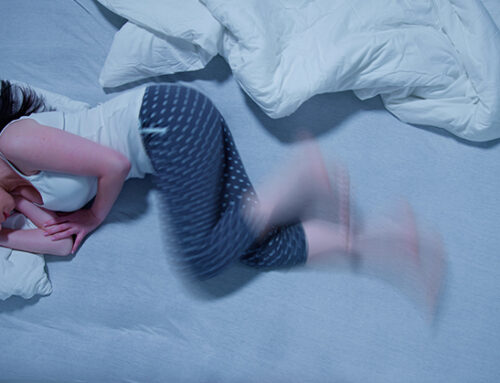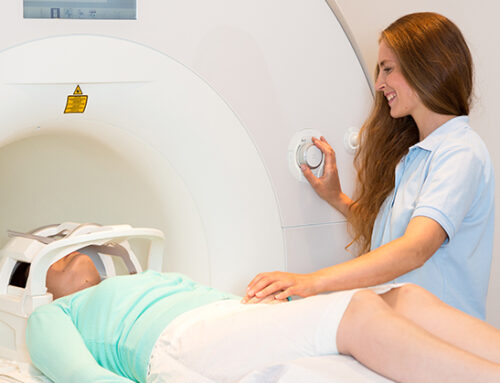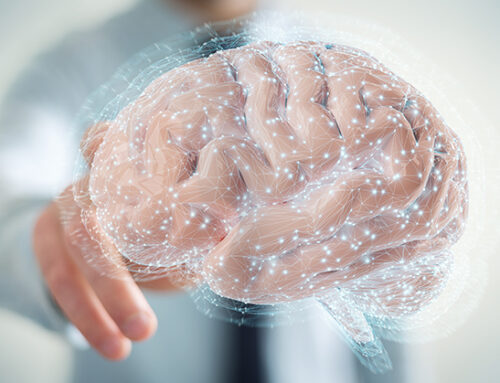Researchers have been working on blood tests, eye tests, even sense of smell tests– all in an attempt to uncover a screening tool that reveals the very earliest signs of dementia, long before symptoms appear.
As they search for what some have called the holy grail of neuroscience, a group of dementia researchers in Boston say they’ve made an important discovery.
Even more exciting, all it involves is putting on a headband before going to bed.
Some people age better than others. But even if a 40-year-old has the heart of a teenager, he or she may also have the brain of a senior citizen.
This difference between what we normally expect a person’s biochemistry to look like at a certain age, and what it actually shows, is called differential aging.
Up until now, studying differential aging of the brain and other organs involved the use of magnetic resonance imaging (MRI), which is expensive and impractical as a universal screening tool.
To find a method that was just as accurate but simpler than an MRI, researchers at the Massachusetts General Hospital and Beth Israel Deaconess Medical Center in Boston, created the Brain Age Index (BAI), which takes a unique approach to measuring the difference between brain age and chronological age.
The Brain Age Index
The BAI is based on a sophisticated method of measuring brainwave activity with an electroencephalogram (EEG) during sleep. It makes use of artificial intelligence and a large volume of sleep data.
Elissa Ye, one of the investigators, described the BAI as “an important advance” noting that sleep EEG tests are increasingly accessible in non-sleep laboratory environments using inexpensive technologies such as dry EEG electrodes and simple headbands.
But how well does it work?
Prof. Ye and other researchers have already put their BAI model through its paces in several trials and found it could correctly predict an older brain age when participants have a mental or physical illness that adversely affects brain health.
In fact, in 2015, researchers found that determining brain age using BAI as measured with a headband of electrodes was more accurate than measuring changes in the volume of the hippocampus – a key memory area of the brain – and state-of-the-art biomarkers derived from cerebrospinal fluid.
Researchers also published a study earlier this year in which they revealed that as the BAI increased so did the reduction in life expectancy. In other words, the higher your BAI, the shorter your life span.
For their latest study, just published in JAMA Network Open, the Boston team turned their attention to predicting dementia.
BAI Increases with Dementia
Researchers carried out more than 5,000 sleep studies in patients aged between 43 and 65, dividing them into four groups. A dementia group containing 88 patients, a group of 44 patients with mild cognitive impairment (MCI), a group of 1,075 patients with minor symptoms of forgetfulness, and a cognitively healthy group.
The research showed that as cognitive impairment increased, so did the BAI scores.
Scores for each group, from the healthiest to those with dementia, were 0.2, 0.58, 1.55 and 4.18. To put these scores into perspective, scores for the dementia patients represented brains that were four years older than the cognitively healthy group.
What’s more, the BAI scores measured with a headband correlated with standard cognitive tests used to identify dementia that were carried out before the start of, and after the completion of, the study.
BAI May One Day be as Important as Measuring Blood Pressure
Study author Dr. Alice D. Lam believes the findings on BAI are an important discovery for the future of early dementia diagnosis as well as prevention. Prof. Lam said, “BAI has potential as a screening tool for the presence of underlying neurodegenerative disease and monitoring of disease progression.
“Because [it is] quite feasible to obtain multiple nights of EEG, even at home, we expect that measuring BAI will one day become a routine part of primary care, as important as measuring blood pressure.”
While I’m not aware of any doctors or neurologists currently using the BAI to diagnose dementia in its earliest stages, the prospect is exciting, to say the least. I do know that I’d be interested in trying one of these BAI measuring headbands myself as soon as they become available. I’ll keep you posted when more information about the availability of this new diagnostic test is revealed and I’ll let you know how you can get it.







